BOTTOMLINE THE
June 2023

June 2023
The benefits of valueadded products

Labour savings solutions
Save time with sous-vide

DRAUGHT BEER: Are you pouring money down the drain?
RECIPES:
One product, four ways
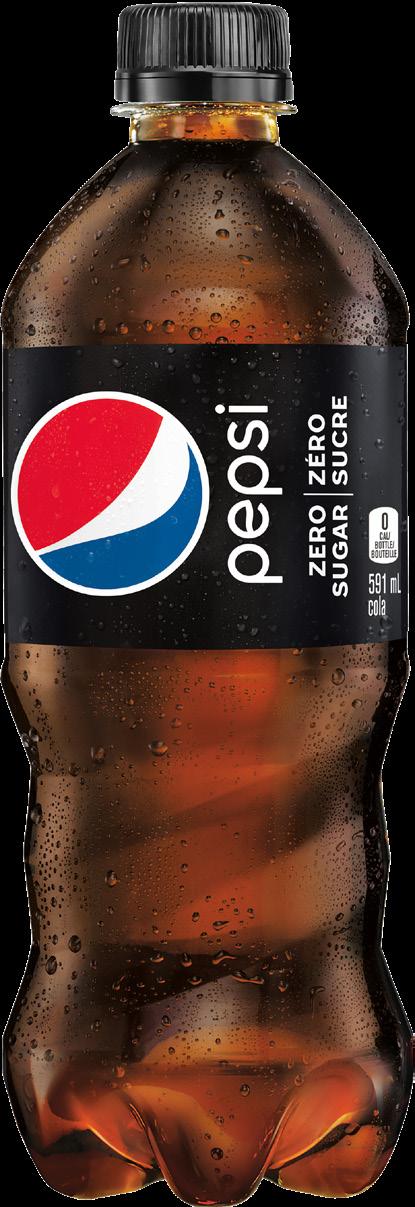

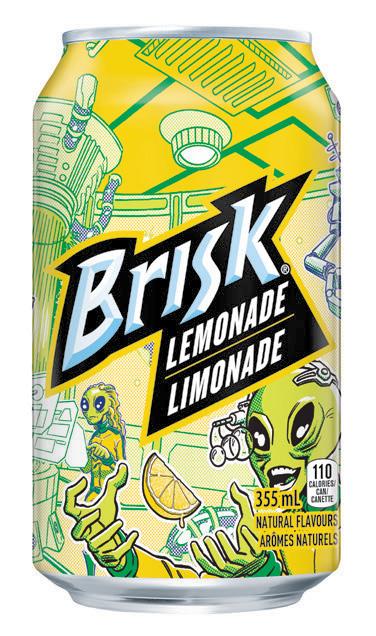
• Pepsi has one of the most diverse brand portfolio with favourites that consumers know, love and trust with products such as Pepsi, 7UP, Mountain Dew, Dr. Pepper, Crush, Schweppes, Dole Juices, Lipton’s Iced Tea, Mott’s Clamato, and Aquafina and many more.
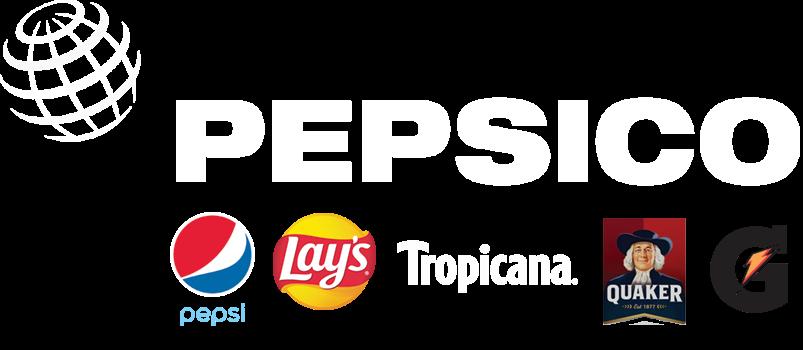
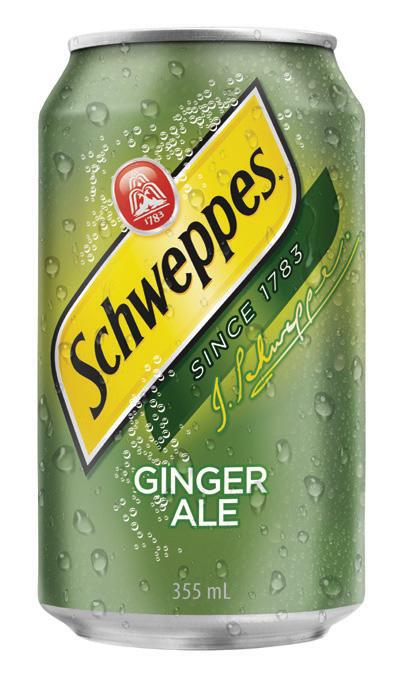
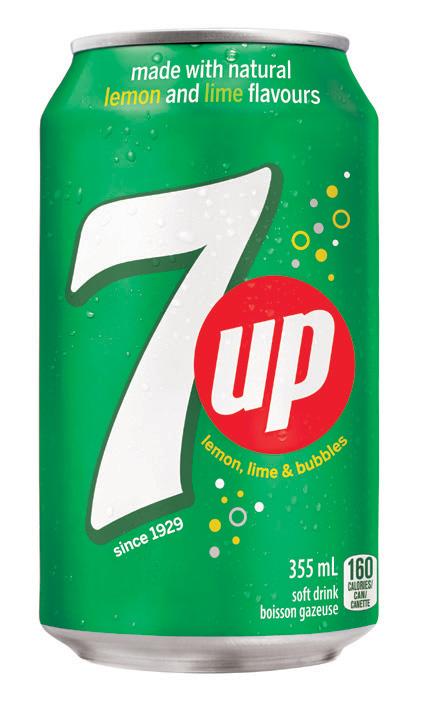
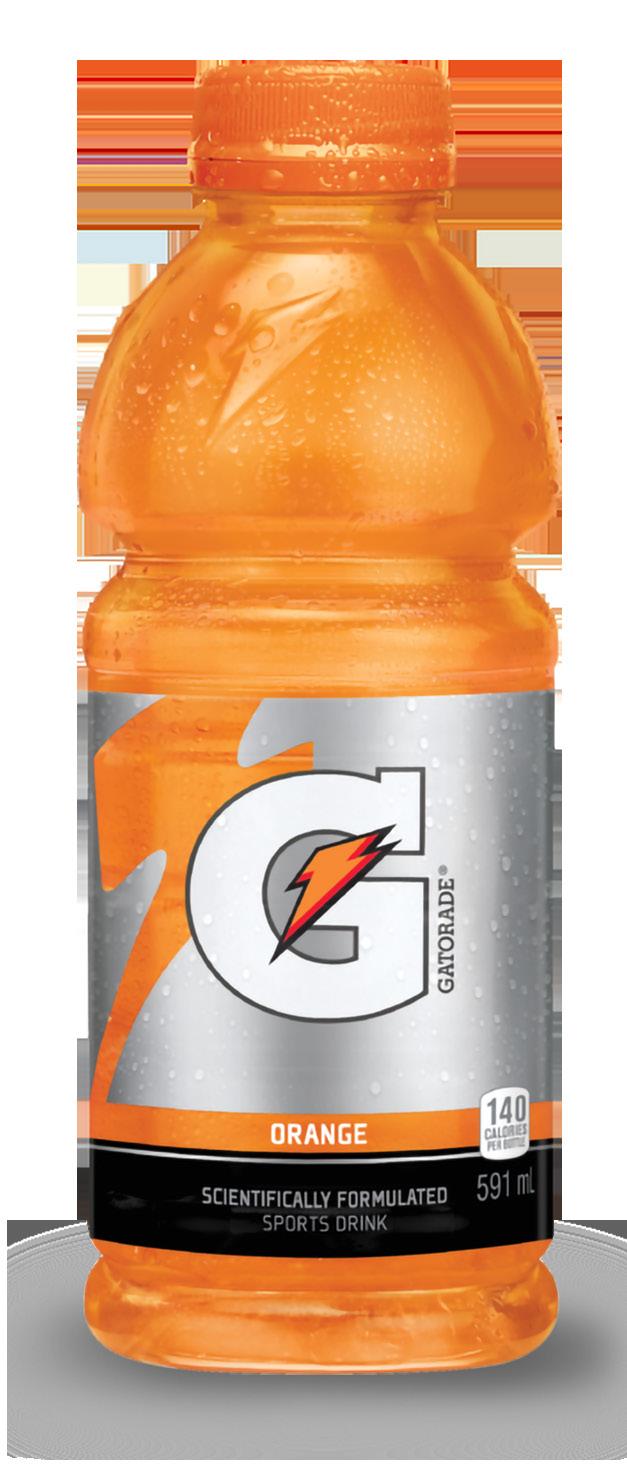
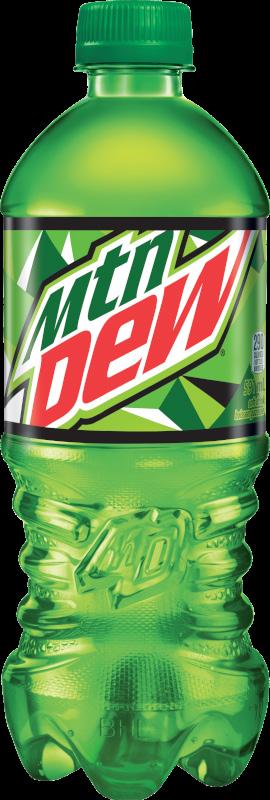
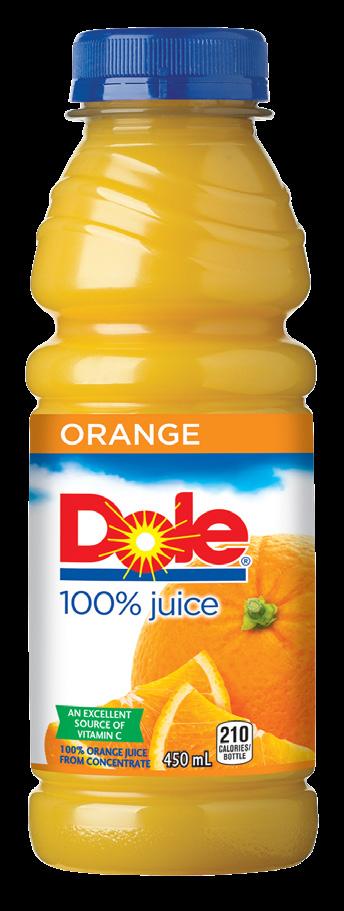
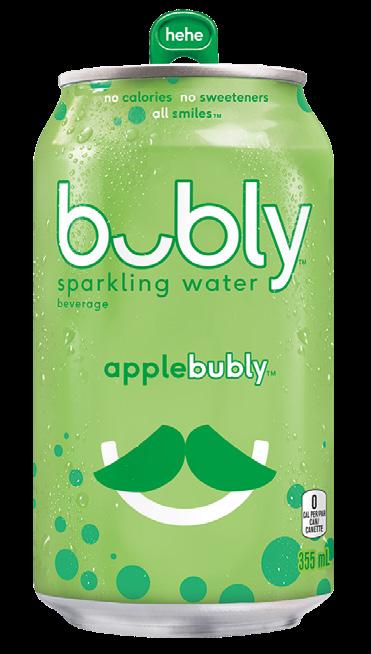
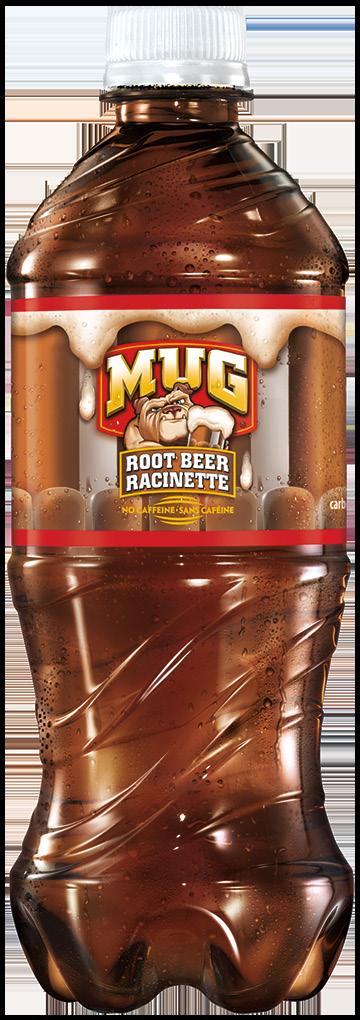





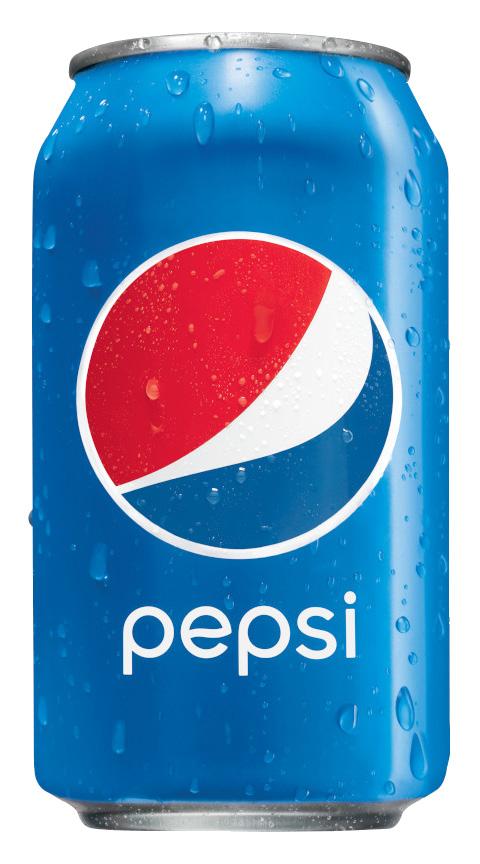
• Members receive special off-invoice pricing
• Seasonal special promotions
Equipment is available on a loan basis at no extra charge including installation.
Reach out to your account manager and see how we can help you save with Pepsi

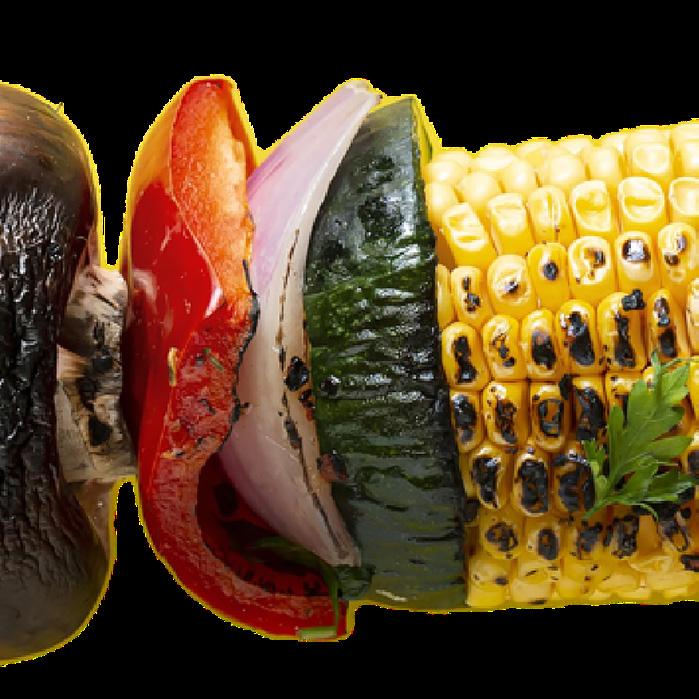



With the increasing price of draught, having a well-kept draught system in place and trained staff are key to saving money
Are you trying to do everything right when it comes to your draught beer, but you still have pints returned? Is draught spillage hurting your bottom line? Do you find your beer system doesn’t always work correctly? Are your pints pouring foamy?

That’s money down the drain — literally. After all we’ve been through with COVID-19 restrictions and shutdowns, the last thing you need is to lose money on your draught beer when there’s an easy fix.
The cost of draught is continually increasing — now about $0.12-13 an ounce — and is becoming a point of concern for operators. The average industry spillage is 8-10%. If you’re selling 10 kegs a week and spilling 10%, that translates into a loss of approximately $10,000$12,000 a year.
Draft pours at a rate of two ounces a second. If staff are opening the line for 4 seconds just to ‘flush the line” before they pour pint, that’s 8 ounces down the drain. That is a buck every four seconds going down the drain.
A big part of the problem with draught systems, is that draught service technicians, bartenders, and servers who pour draught usually only receive outdated, hand-me-down
training that reinforces bad habits. With staff turnover being high, many new bartenders have little to no training on how to property care for the beer dispensing system that they are using.
Foodbuy spoke with Steve Riley (the self-proclaimed Chief Beer Guy) at BetterBeer. com about what he is seeing across the industry right now. Riley, a long time beer industry employee, started BetterBeer.com in 2009. He was frustrated with the 10% spillage average and the wasted money. He strove to change this by developing systems and training to improve the situation. BetterBeer. com helps those who want to ensure their draught beer systems are working efficiently and focuses on educating staff on how beer systems operate, how to clean a system and keep it performing properly and even how to pour a proper pint so you can earn the best financial return from your draught beer program
“BetterBeer.com is different from other companies because staff training is a big piece of our program,” says Riley. “We teach staff and managers how to change kegs properly, how to troubleshoot the draught system and how to sell draught. These are things that nobody taught me when I started out, and I wish I had known them then.”
Riley points out that BetterBeer.com differentiates themselves from other draught service companies by being proactive. Other companies are reactive, they respond to problems when you call them, such as a leaking keg, lost pressure or broken couplings. They fix the problem and leave. BetterBeer.com picks up where others leave off. BetterBeer. com doesn’t service or sell equipment, so there’s no conflict of interest. Instead, they maintain the overall system and look for problems before they happen.
“We look at the overall approach to draught beer and try to understand what’s going on behind the problem. For example, if there’s
spillage, we dig into why. It can only be a result of the system or the staff,” says Riley.
A big component to BetterBeer.com’s process is their recurring audits. BetterBeer. com conducts ongoing field audits to ensure operators are maintaining the systems and keeping up with staff training. They track line cleanings, date codes on kegs to ensure proper rotation, temperatures, pressure — all in an effort to make sure your system is running top-notch, while limiting your downtime.
Their unique line cleaning tracking system will let you know which of your lines were cleaned, when and by whom, and if anything was missed. And the system can be used by any service provider to ensure visibility.
“Today, many companies are offering to clean your lines. The question I ask is ‘Are you tracking what they do and when they do it?’ We can set up a system to help operators monitor this process. Then we randomly audit to ensure services are being provided and the staff are keeping up with their training”
Catching potential issues before they happen is critical to your business’ success. Nobody wants to be caught on a Saturday night with a draught system that crashes, no available service technicians, and no idea how to fix it.
On the staff side, BetterBeer.com offers online courses to train staff on how to change kegs, proper pouring techniques, how to clean glassware, how to troubleshoot as well as provide Beer 101 education.
“When assessments and training come together, spillage goes down, draught beer quality and customer satisfaction goes up,” says Riley.
While training can be technical, BetterBeer. com keeps it simple and easy to follow. Staff and managers don’t require the same depth of training that a draught technician does, but they definitely need to have a strong foundation in the basics.
During staff training the importance of effectively cleaning glassware is stressed. “Clean glasses are probably the biggest
problem in the industry behind line cleaning and it’s the easiest to fix,” adds Riley.
If a beer glass is not cleaned properly, the top foam will disappear quickly and no bubbles will cling to the side of the glass. It can look and taste bad which leads to a return and a loss of profit.
Does the following scenario seem familiar to you? Your bartender pours a pint, they put it on service and during the 30 seconds it sits there, the head completely collapses. More often than not, the bartender gets it back for a top up, pouring another 10¢ of beer to fill it to the top. You’re putting more than 20 ounces in a 20 ounce glass. When the guest gets the beer, it doesn’t look great, some has spilled out when being carried, the glass isn’t full and there’s no head.
“Years ago you could get away with that,” says Riley. “Consumers are better educated now about the importance of clean glassware and pours, and coupled with paying $10 or more for a pint, their expectations are much higher.”
Residual oil on beer glasses is a huge culprit in the loss of head. This oil can come from fingerprints (when servers clear away glasses and try to carry 4 at once “spider style” with their fingers on the inside) or from dairy (when dirty napkins get tucked inside beer glasses when a table is being cleared). Often the glass will get washed with a spray system, but not scrubbed. The oil on the glass will just get sanitized, it can’t be sprayed off.
Riley stresses that BetterBeer.com’s cleaning technique and products work and will save you money and improve customer satisfaction. “For fifteen minutes, once a week, you need to deep clean your glasses with the proper cleaning solution and proper brush. It makes a huge difference!”
Don’t throw your money down the drain. BetterBeer.com programs are available nation-wide. Programs run for one year, and Foodbuy members are eligible for special pricing. Reach out to your account manager for more information.
~ Foodbuy
We look at the approach and what’s behind the problem.”


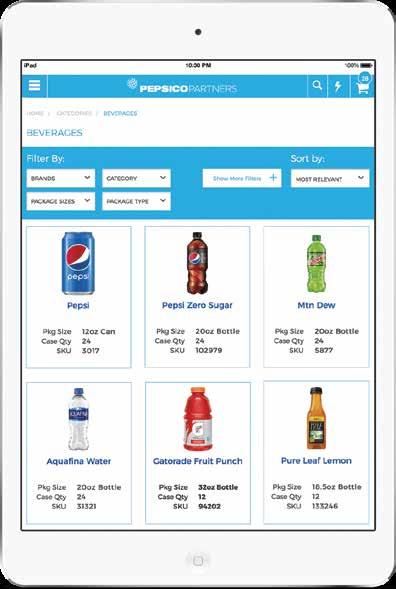
You’ve probably heard the term, but what is sous vide cooking, and why do I need it?
Sous vide (pronounced sue-veed) is a cooking technique that utilizes precise temperature control to deliver consistent, restaurant-quality results. High-end restaurants have been using sous vide cooking for years to cook food to the exact level of doneness desired, every time.
Sous vide, which means “under vacuum” in French, refers to the process of sealing food in an airtight container—usually a vacuum sealed bag, then cooking it to a very precise temperature in a water bath with a constant temperature, usually 130-160°F. The water never comes to a boil and the process is gradual and controlled. If you put a steak in a bath set at 140°, there’s no chance the steak can go beyond that temperature. You’ll have a perfectly cooked protein every time. This technique produces results that are impossible to achieve through any other cooking method.
Sous vide methods eliminate alot of active prep time required by line cooks. The proteins cook unattended for a few hours, freeing up kitchen staff for other tasks. Then the protein only needs a quick finish on the grill before being plated.
And if you need to save even more time, many suppliers, such as Premier Meats are offering a full line of already cooked sous-vide products. Whether you choose to cook your own sous-vide, or buy it pre-made you are always guaranteed perfectly cooked proteins. Having pre-cooked vacuum sealed proteins at your disposal makes meal prep just that much easier. Defrost the meat (if it has been frozen), open the package, sear the meats if needed, or preheat and serve. You can add your own sauces, gravies and/or seasonings as desired.
When it comes to saving money in your operation, it’s not always about picking the least expensive ingredients. Buying precooked meats, such as sous vide, will save you labour expenses, equipment expenses, energy costs and reduce your waste. Your product will always be consistently produced and high in quality, and that goes a long way with customer satisfaction.
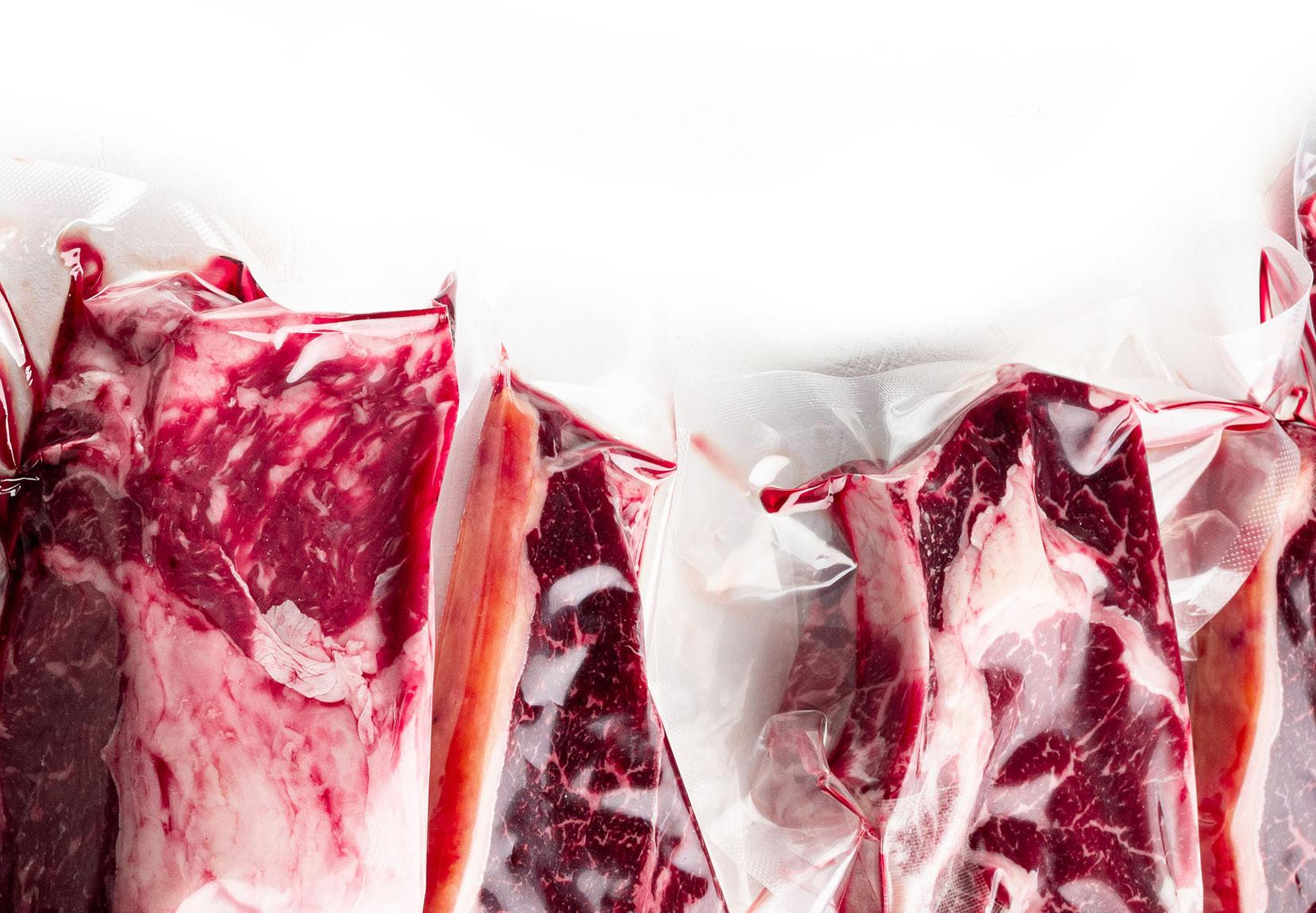
You have a shortage of cooks or chefs/ Lack skilled staff
You want/need to serve a high quality protein regardless of staffing issues
Proteins are the most expensive product on your plates and you need to be confident about cooking results
Frees up your oven for other menu items
Allows cooks/chefs the time to be more creative with plate presentation or other menu components
You’ll have less customer complaints about tough proteins (less waste)
Consistency. Your proteins will deliver the same great taste and eating experience every time
Convenience. Easy to use and prepare whenever you need it

Enjoy the convenience of creating meals with Premier Meats.

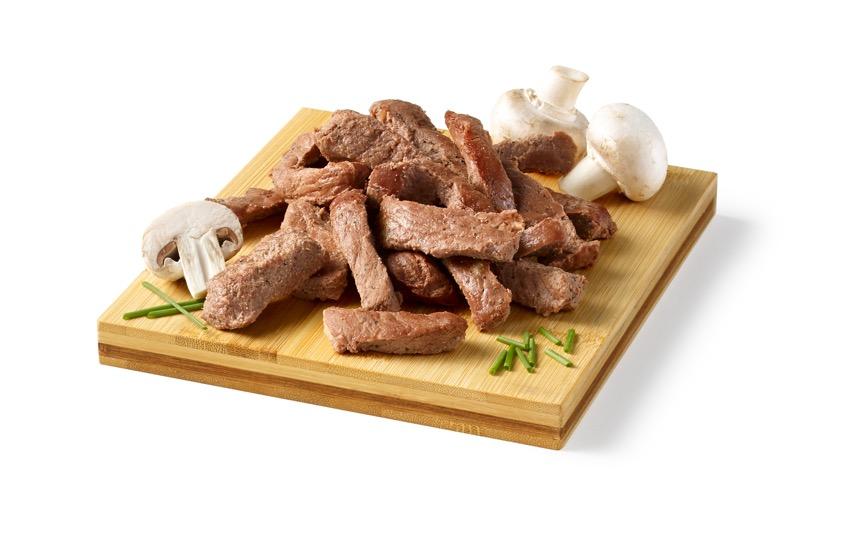
Our meats are already cooked sous-vide, so they save you valuable time in the kitchen. These products only take a few minutes to heat and you’ll have consistent flavours and textures every time. And with the addition of a few extra ingredients, you’ll be able to get creative with these great tasting main protein dishes that will satisfy every diner in your restaurant.
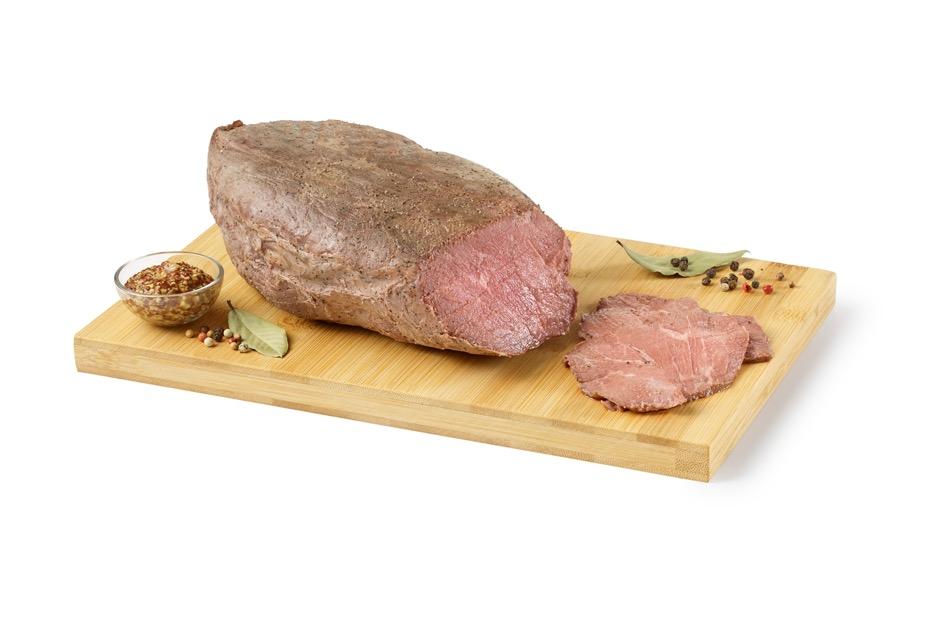
Products are fully cooked, then frozen. Thaw products in fridge for 48-72 hours. Heat and serve.

Because we know you are short-staffed, out-of-time, need consistency, and love great foods
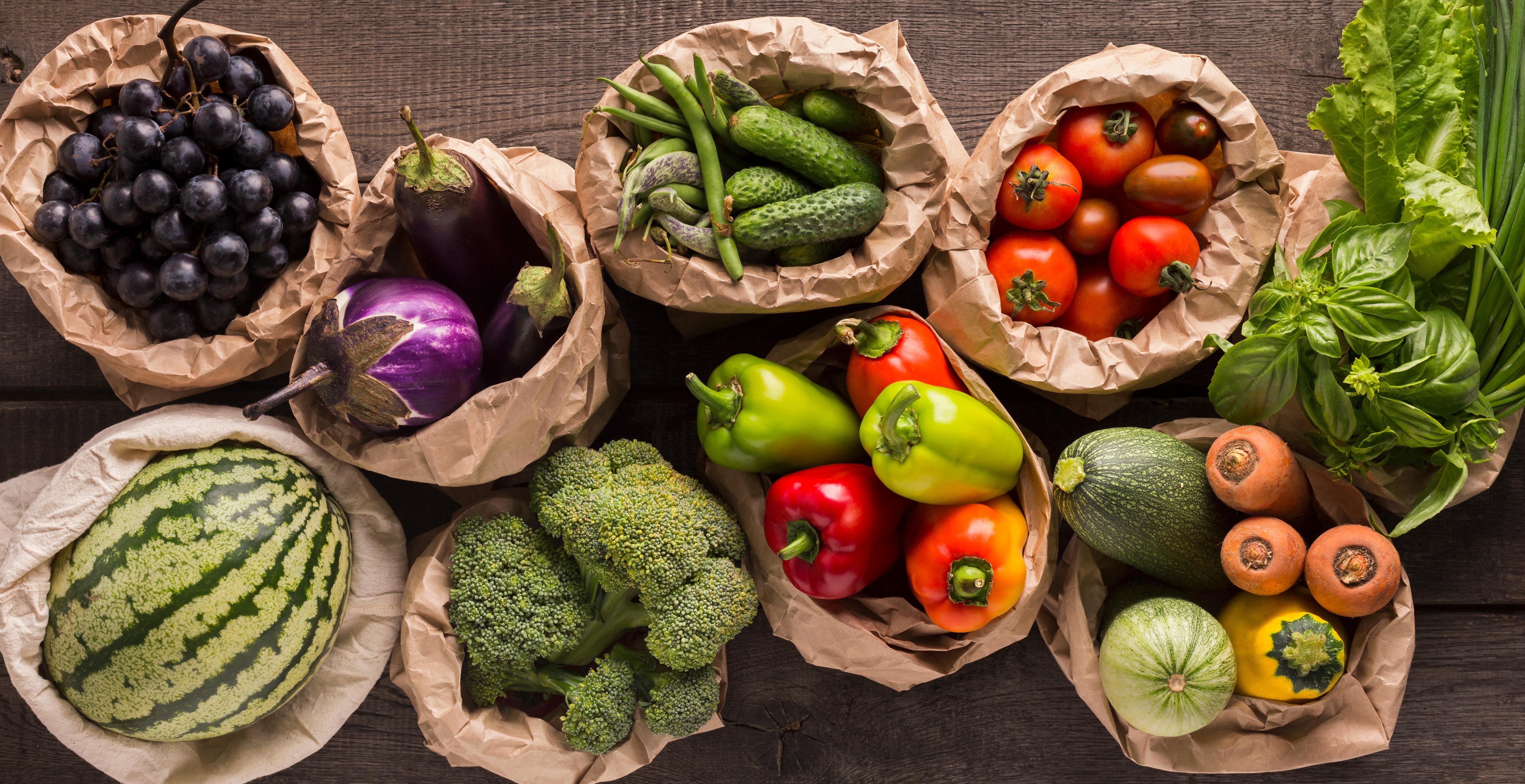




Bringing value-added products into your operation can help you overcome labour challenges while driving quality and consistency.
With fresh, creative (and Instagramworthy) dishes in high demand and labour in short supply, chefs today are facing an unprecedented crisis. According to the most recent study by Restaurants Canada, nearly half (48%) of table-service restaurants reported a shortage of skilled labour in Q4— the highest share since Q4 2014.
“It’s a helluva topic to discuss,” says Stéphane Renaud, Corporate Chef, Gordon Food Service, Quebec City. “Labour is getting very scarce, tough to source and often not skilled. Operators are not able to put into place the level of quality they want.”

One solution chefs are turning to? Valueadded products. To be sure, this is not a sexy topic. For years, value-added products have suffered under some pretty stifling preconceived notions: they’re not for “real chefs,” they’re institutional or using them cuts corners at the expense of creativity and flavour.
Fortunately, times have changed. Valueadded products offer fresh solutions—from specific products produced with chef’s specifications to flash-frozen vegetables that retain fibre and flavour integrity and are nearly indiscernible from fresh—that allow operators to maintain their creative edge while facing a limited pool of skilled labour.
“It’s a logical solution to a very real
problem,” Renaud says. “Four or five years ago, nobody was interested in many valueadded products. But now, you are looking at 70-80 hours of labour just to do basic mise en place. This is time that chefs could instead use to be on the line, making sure plates are up to specs.”
Incorporating value-added products allows operators to dedicate more time to providing consistent quality and building creative dishes. Michael Viloria, Culinary Chef, Gordon Food Service, British Columbia points out that embellishments, like rosemary brown butter and black pepper honey on a dish of chicken and waffles, are what make menus unique.
“When yield, labour and consistency are top of mind, value-added is a great option to consider,” he says. “What I have found is that most operators have limited real estate and tools to work with, yet strive to have a variety of offerings on their menus. Value-added products have made it possible to create and compete within the market.”
Not only do value-added products provide some relief from the labour shortage, they also allow for streamlined inventory and cost-savings through a reduction in food waste. Precooked or prepacked products, such as a basic braised beef, simply need to be thermalized and assembled and can
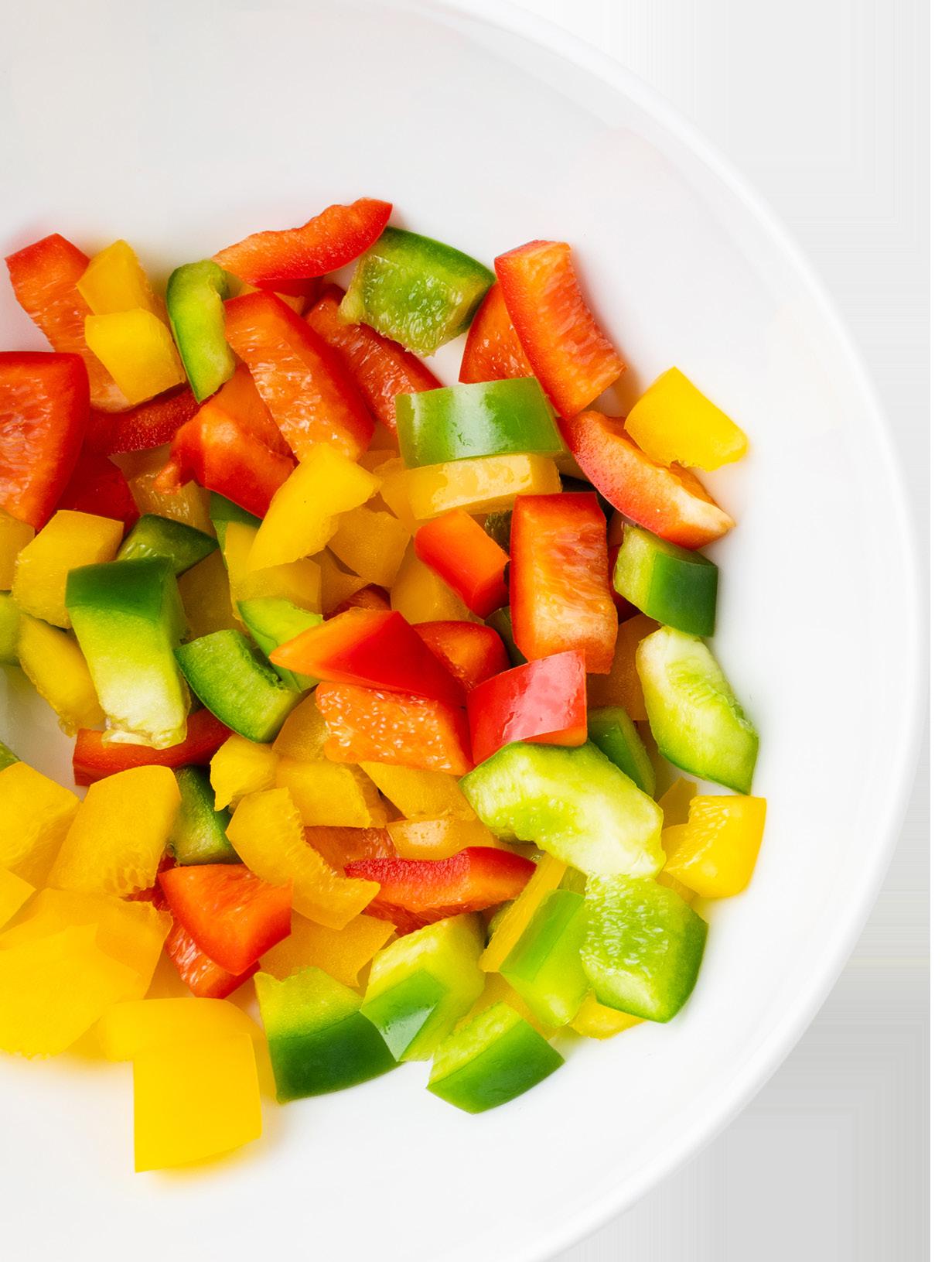
be pulled throughout the menu in a variety of applications. Fresh herbs, bright citrus and seasonal produce can round out dishes without taxing the kitchen.

“With value-added, you are working with a finished product where you can serve it as is or play with it to make it your own,” Viloria says. Viewing value-added products as a base allows operators to conserve labour for those top-note final touches that stand out to customers.
The reality of the market means kitchen staff must be performing tasks that directly contribute to increased revenue through a higher perception of value. When analyzing a menu and factoring in the actual cost of the ingredient and the labour involved, the need for value-added products becomes clear. There is nothing to be gained by having cooks spend hours peeling potatoes and carrots; quite simply, customers will never notice and it certainly will not increase the inherent value or integrity of a dish. David Evans, Culinary Chef, Gordon Food Service Ontario points out that “purchasing pre-peeled and ready to cook vegetables would in no way change the creativity of a menu, but would save hours of labour that could then be used to create, for example, house-made desserts that are really different and make a much larger contribution to profit margin.”

That’s a pretty sweet solution.
~ Gordon Food Services
81% 81%
of operators agree that desserts that of operators agree that desserts that are easy for staff to serve are are easy for staff to serve are essential to their business* essential to their business*
#9293 Gourmet Lemon Meringue Pie
Gordon #4198906
Sysco #6752976

#7139 Traditional Lemon Meringue Pie
Gordon #1043008
Sysco #1515337
Pre-Baked and pre-sliced products save labor and reduce waste

Pre-baked, Pre-sliced Cherry Pie

Sysco
adding a few pantry items to a classic base can transform one item into multiple dishes
#8240 Uniced White Sponge Cake
Gordon #1014794
Sysco #8018605
Uniced Sponge Tres Leches Cake

For more information, contact Marjorie Smith: msmith@saraleefb.com

use “thaw and serve”, or items that can be easily garnished to make it look homemade without a pastry chefLemon Tajin Pie #0888 8-Slice Cherry Lattice Pie Gordon #1148120 #7667498
Our freezer-to-fryer/oven and other easy-to-cook products make kitchens more efficient and give operators time back in their days.
Since products come ready to be cooked and require minimal handling, exposure to cross contamination is greatly reduced.
Operators can mix up their menus by serving one product in a several ways without incurring additional food costs.
Ease back-of-house labour issues with products that require no prep, and are so easy to make, anyone can do it.
Keeps more pennies in operators’ pockets
Operators save on time and food waste with our products since they don’t have to bread or batter them themselves.
The versatility they need
With the ability to serve products in multiple ways, operators can reduce the number or SKUs they have to manage while providing the menu variety guests want.
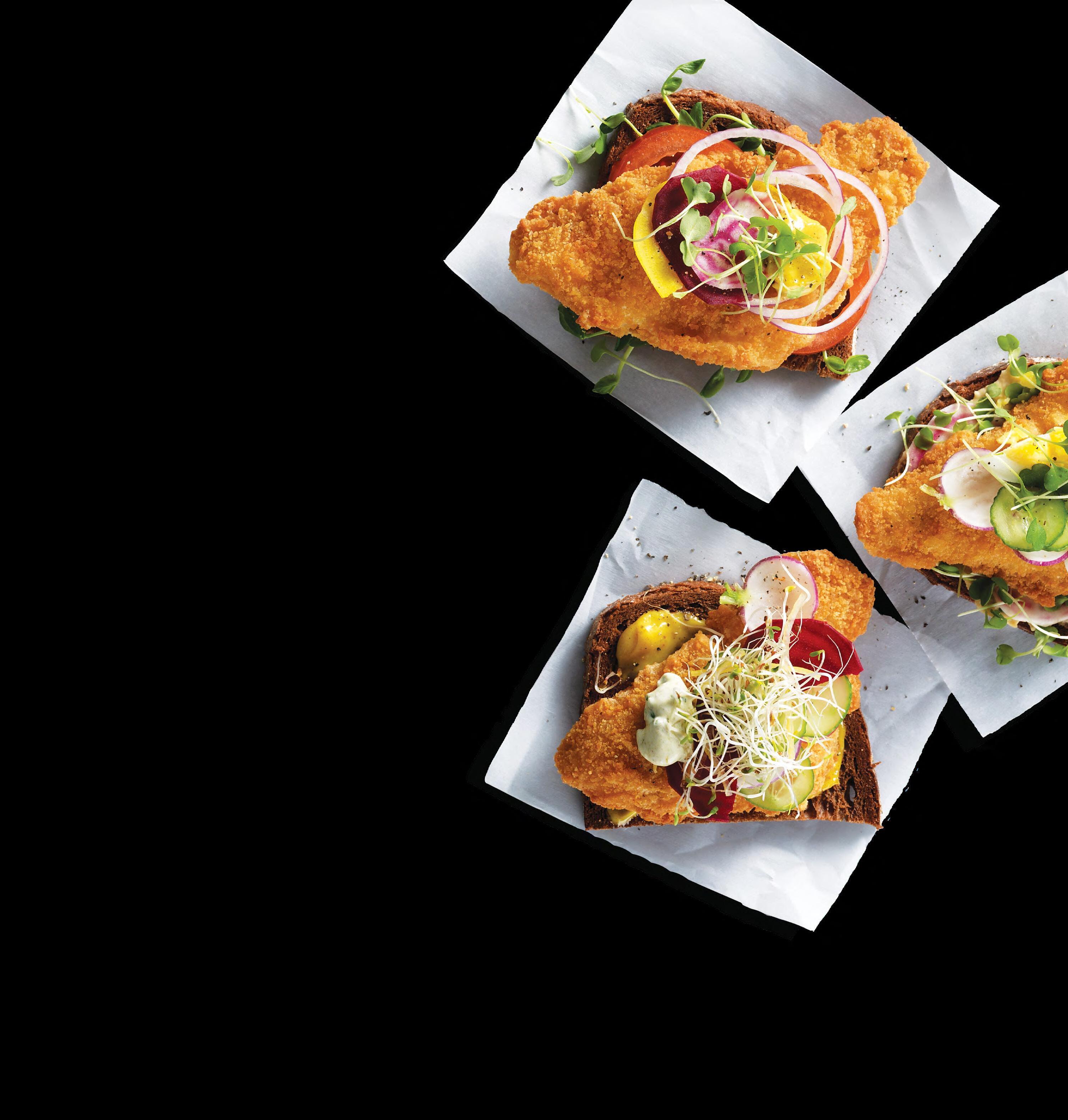
As the foodservice seafood leader, operators can rely on us to ensure their staples are always available at a price that’s right.

Purchasing ingredients that are only used for one menu item can be wasteful. These ingredients can spoil if not used in time, leading to a waste of resources. Consider which ingredients can be used in multiple dishes. This practice also increases the overall efficiency of your restaurant’s kitchen by getting food out to customers in less time.
Limiting ingredients doesn’t translate to a lack of creativity or options in your menu. Instead, it can boost creativity and upgrade your menu without increasing the cost of food or additional labour.
Menu simplification is even easier to handle when you purchase products that are already prepped and readyto-use, such as liquid eggs from Burnbrae Farms.
Available as whole eggs, egg whites, or egg yolks, they can be used in virtually any recipe. Just shake and pour. Whatever your egg preference is, Burnbrae has the one you need.
You’ll also earn rebates on these products with Foodbuy. Ask your account manager to see how much you can save.
A hearty lower carb protein bowl that can be customized with seasonal toppings.
Prep: 5 min | Servings: 1 | Cook: 3 min
2 tsp salted butter
Pinch each salt and pepper
2/3 cup (150 g) Burnbrae liquid eggs
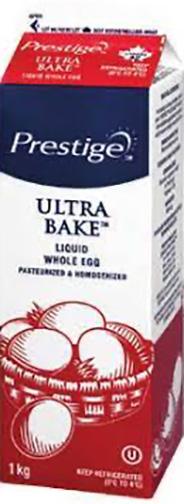

1 1/2 cups (375 ml) assorted toppings
Suggested toppings:
Cheddar cheese
Baby spinach
Green onions
Roasted sweet potatoes
Grilled peppers
Asparagus
Whisk liquid eggs with salt and pepper. Heat butter in a small skillet over medium-low heat; add eggs and softly scramble until just about set (about 2 to 3 minutes).
Spoon scrambled eggs into serving bowl and surround decoratively with toppings.

Seasonal variations:
Spring: Blanched asparagus, fresh peas or sliced snap peas, diced radish, sliced avocado, pea shoots, sliced green onions, crumbled goat cheese and balsamic drizzle.
Summer: Grilled zucchini and/or summer squash, peppers, baby arugula, halved grape tomatoes, torn fresh basil, ricotta or fresh mozzarella and basil pesto.
Fall: Roasted sweet potatoes or squash, roasted red peppers, corn, kale or spinach, cubed cheddar and sour cream.
Winter: Fried potatoes, fried onions, sautéed peppers, blanched broccoli, grated Gruyere or white Cheddar cheese and chili sauce. Use any leftover ingredients on hand to create daily seasonal bowls.
Love tacos? Then you’ll love our recipe for Easy Huevos Rancheros!

Prep: 15 min | Servings: 4 | Cook: 3 min
INGREDIENTS
2 tsp (10 ml) non-hydrogenated margarine
1 cup (250 g) Burnbrae liquid eggs, well shaken or whisked
4 corn tortillas (6 inch/15 cm), warmed
4 processed cheese slices
1/2 cup (125 ml) chopped tomatoes
1 avocado, chopped
1 tbsp (15 ml) hot pepper sauce
1/4 cup (50 ml) chopped fresh cilantro
1 lime, cut into 8 wedges
DIRECTIONS
Melt margarine in small nonstick skillet on medium-low heat. Whisk eggs until blended. Add to skillet; cook for 3 minutes or until set, stirring occasionally.
Top tortillas with cheese slices, eggs, tomatoes, avocados, hot pepper sauce and cilantro; fold in half.
Serve with lime wedges.
Tips
Serve topped with salsa and sour cream. Serve with fresh fruit to round out the meal.
This easy to whip up pie will save time in your kitchen.
Prep: 10 min | Servings: 8 | Cook: 60 min
INGREDIENTS
1 pre-made pie crust
1 cup (250 ml) Burnbrae liquid eggs
2 cups (500 ml) whole milk
2/3 cup (135 g) granulated sugar
1 tbsp (15ml) pure vanilla extract
Whipped cream
DIRECTIONS
Preheat oven to 350F.
In a large bowl, whisk together the Eggs Creation Whole Eggs Original, milk, sugar and vanilla. Pour the mixture into the pie crust. Bake for 60-75 minutes or until a thin knife inserted into the center comes out clean. Let cool completely before serving.

Top with whipped cream.
Because everyone loves westerns, and this add a new twist.
Prep: 30 min | Servings: 12
INGREDIENTS
1 tsp (5 ml) oil
1/2 cup (125 ml) chopped red onions
1 cup (250 ml) each chopped green and red peppers
1 can (235 g) refrigerated crescent dinner rolls
8 processed mozzarella cheese slices, divided
1 (175 g) ham steak, chopped
2 cup (500 g) Burnbrae liquid eggs, well shaken or whisked
DIRECTIONS
HEAT oven to 375ºF
HEAT oil in medium nonstick skillet on medium heat. Add onions; cook and stir 3 min. Add peppers; cook and stir 3 min. or until crisp-tender. Remove from heat.
UNROLL crescent dough and cover bottom of 13x9-inch pan; firmly pressing perforations together to seal. Prick with fork at 1-inch intervals.
BAKE 8 min. or until lightly browned. Meanwhile, coarsely chop 2 cheese slices.
TOP crust with remaining (whole) cheese slices, ham and vegetables. Pour eggs over vegetables; top with chopped cheese slices.

BAKE 30 min. or until centre is set. Cool 5 min. before cutting into bars.
Refrigerate any leftovers for up to 3 days. Reheat in microwave just before serving.
Does your menu change with the seasons, or do you source the same products yearround? You shouldn’t have to choose. Combining stand-by products with seasonal ingredients is the ultimate way to keep your food quality high and your procurement costs low.
There are many reasons that operators across industries are incorporating more seasonal sourcing practices into their procurement strategies.
The first, is that it can save you money. When you source fruits and vegetables during their peak season, you’re able to source from local and regional suppliers. That means lowering your distribution costs. Taking away long-distance shipping also makes seasonally sourced food more sustainable, which is a major focus for many businesses.
Introducing a seasonal menu keeps your menu offerings fresh and exciting. By regularly rotating dishes, customers are enticed to return frequently to try new dishes. Not only will you attract new guests, but you’ll also retain your regular customer base.
A limited time offer gives you a chance to add something unique to your menu and add hype to get new customers in the door to try a new product. Customers crave flavours of the seasons and will order accordingly— lemonade in the summer sun is always more enjoyable than on a snowy day.

Using in-season ingredients means you are getting the freshest, most flavorful produce available, which in turn enhances the flavour and quality of the dishes you serve.

~ Datassential
Supplementing your broadline programs with regional and local options based on seasonal sourcing can make a big difference in your organization. Foodbuy provides access to seasonal fruits and vegetables, including locally grown. Our expansive produce portfolio offers a fresh, seasonal mix of fruits and vegetables all backed by our commitment to provide quality, traceable products that meet our customer’s unique needs. Ask your R.I.B.A./Foodbuy account manager about our programs today.
~ FoodbuySeasonal menus allow your kitchen staff to show off their creativity by finding unique ways to show off the fresh produce. And it doesn’t have to be in the main course — beverages and desserts can also use a boost of freshness.
Sourcing ingredients from local food suppliers and farmers not only ensures the freshest produce but also supports the local economy and promotes sustainability.
Cooking with seasonal ingredients that are more abundant during peak season curbs high supply costs because farmers and distributors have larger bounties to sell. And with local produce, high transportation and storage costs aren’t incorporated into the price.
79% OF CONSUMERS ARE INTERESTED IN LIMITED -TIME-OFFERS FEATURING SEASONAL INGREDIENTS


Cherry tomatoes are perfect for stuffing, adding to salads, tossing in pasta, on grilled skewers with meat and/or other vegetables, roasted with olives, grilled with other veggies, caprese skewers with mozzarella, paired with basil

• Cherry tomatoes get their name because they’re the size and shape of cherries. These little round tomatoes are juicy, sweet, and have thin skins.
• Cherry tomatoes taste similar to other fresh tomatoes, but because of their small size, the flavour can be a little more concentrated.
• These tomatoes are great for hollowing out and stuffing.
• Cherry tomatoes can be red, yellow, or orange in color.
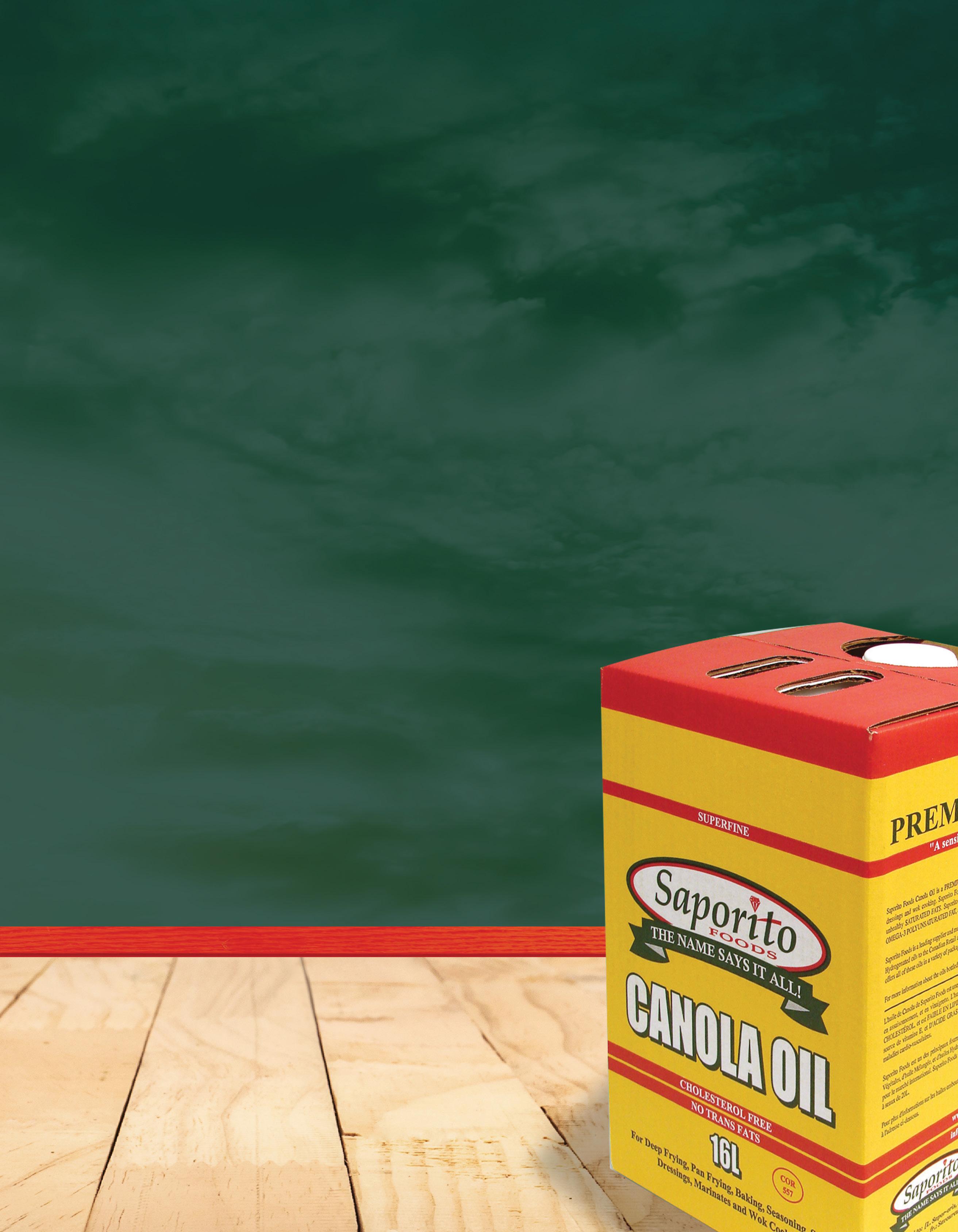
• Cherry tomatoes are sweeter than grape tomatoes and have a thinner skin, making them less transportable than grape tomatoes.
• Keep cherry tomatoes at room temperature for the best flavour and to avoid the mealy texture that can result from putting them in the refrigerator.
• Two notable varieties: Sungold tomatoes are popular due to their lovely gold color, juicy flesh, and bright flavor. Black cherry tomatoes have a dramatic hue and can have a smokier flavor.

Watermelons can be used in salad (pairs especially well with feta), pureed for drinks such as margaritas, grilled for dessert, made into salsa, added to lemonade, made into fruit leather.
The rinds can be pickled and used in coleslaw, in salsa, or as a side dish with poultry.
• Seedless watermelons aren’t really seedless. They have small white seeds in them.
• A seedless watermelon is a sterile hybrid which is created by crossing male pollen for a watermelon, containing 22 chromosomes per cell, with a female watermelon flower with 44 chromosomes per cell. When this seeded fruit matures, the small, white seed coats inside contain 33 chromosomes, rendering it sterile and incapable of producing seeds.
• Watermelon is 92% water.
• Grilling watermelon enhances it’s sweetness and adds a touch of smoky flavour.
• The longer a watermelon stays on the vine the sweeter it will be.
• Watermelon is pairs well with feta cheese.
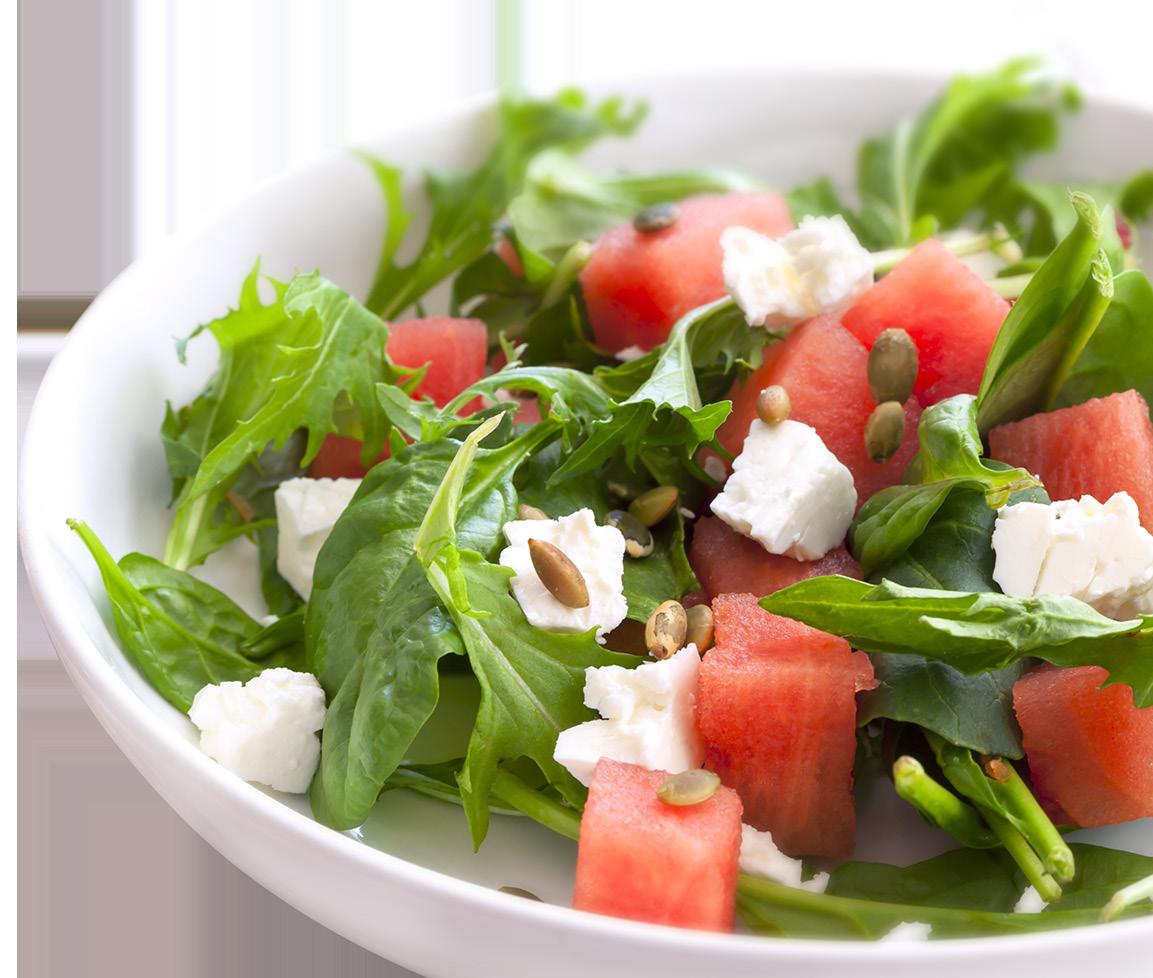
• Watermelon is grown in 96 countries.
• There are more than 1,200 varieties of watermelons, some with orange, green, yellow or white flesh.
• To pick the best watermelon, look at the fieldspot (the big, light coloured area where it laid on the ground). Look for one with a large, dark yellow colour.
Here’s two fresh in-season ingredients you can incorporate into your menus right now plus some interesting food fodder to feed your brain







Tired? Short staffed? Out of time?
The foodservice industry is a dynamic and fast-paced industry that requires constant innovation and adaptability. One of the most pressing challenges facing foodservice operators is the need for labour-saving solutions that can help them save time and money. Here are some labour-saving solutions you can implement in your restaurant or kitchen:

Purchasing high-quality equipment that can perform multiple tasks can save both time and money in the long run. By having equipment that can handle various functions, foodservice operators can reduce the amount of manual labour needed and increase productivity.
It can be expensive to upgrade, but your bottom line will ultimately thank you. As your commercial kitchen equipment ages, the food quality begins to suffer. You’ll rack up higher energy bills, and you’ll have more food spoilage. Plus, older equipment is more likely to break down during the workday, disrupting food prep workflow and costing you money on repairs or replacement parts. Employees can, and will, become frustrated with older, broken equipment. Employee retention and satisfaction is a key target, and saves time/ money on training new employees
Utilizing technology such as touch-screen ordering systems, automated cooking equipment, and inventory software can streamline operations and reduce labour costs. Touch-screen ordering systems can help improve order accuracy, reduce wait times for customers, and reduce the amount of training required for new staff. Automated cooking equipment such as ovens, grills, and fryers can help reduce cooking times, increase consistency of food quality, and require less labour to operate. Inventory software can help minimize waste and optimize stock levels, ultimately reducing the amount of time spent on managing inventory. By incorporating these automated solutions, foodservice operators can reduce labour costs and increase efficiency, ultimately allowing for more time and resources to focus on providing high-quality food and service to their customers.
4 5
1 2 3 6
One effective approach is cross-training employees on multiple tasks, ensuring that there is always someone available to step in and help when needed. By expanding staff skill sets, operators can improve productivity and reduce the likelihood of daowntime caused by absences or turnover. This approach not only saves labour and costs, but it also offers employees the opportunity to learn new skills and feel more valued as members of the team.
Analyze your kitchen layout and position equipment and workstations to maximize efficiency and reduce travel time.
A poorly designed kitchen is a recipe for disaster. Not only is it a fire hazard, but workers bumping into each other can cause dropped foods (which goes into the garbage), dropped and broken dishes, falls, burns, and cuts.
Offering a smaller and more focused menu can reduce the time and effort required to prep and execute dishes. By streamlining your menu, you can reduce waste, save on labour costs, and improve the overall quality of your offerings.
Preparing large quantities of fewer ingredients on a daily basis is much faster than prepping a larger number of ingredients for specialized dishes. It also takes less time to train employees.
You’ll also reduce your food waste. If your menu includes a large variety of specialty fresh produce, or foods that can spoil, they may go to waste if those items aren’t ordered often enough. Buying items that are used in a multitude of dishes ensures that they will always be used daily.
Less items means less storage space and a less cluttered kitchen, more room for food prep and staff to move about.
Using pre-cut fruits and vegetables, pre-portioned meats and cheeses, and even pre-cooked grains, you can save significant time and reduce the amount of labour needed in the kitchen. Not only do these labour-saving solutions streamline your workflow, but they also ensure consistency in your dishes and reduce the risk of food waste.
Utilizing pre-cut and pre-portioned ingredients can also lead to cost savings in the long run. By eliminating the need for additional labour, you can reduce payroll costs and increase your profit margins.
By implementing these labour-saving solutions, you’ll be able to streamline your operations and provide faster, higher-quality service to your customers. Foodbuy has contracts with many suppliers that can provide labour saving solutions for every aspect of your business. Reach out to your account manager to see what we can do for you.
On May 18, the Government of Canada announced it is delivering on the Budget 2023 commitment to lower credit card transaction fees for small businesses by finalizing new agreements with Visa and MasterCard, while also protecting reward points for Canadian consumers offered by Canada’s large banks.
Small businesses pay fees to process credit card transactions, with the largest component being the interchange fee paid to credit card-issuing financial institutions, such as banks. These new agreements will help more than 90 per cent of credit card-accepting businesses in Canada qualify for lower rates and see their interchange fees reduced by up to 27 per cent from the existing weighted average rate. These reductions are expected to save eligible Canadian small businesses about $1 billion over five years.
For qualifying small businesses, Visa and MasterCard have agreed to:
• Reduce domestic consumer credit interchange fees for in-store transactions to an annual weighted average interchange rate of 0.95 per cent;
• Reduce domestic consumer credit interchange fees for online transactions by 10 basis points, resulting in reductions of up to 7 per cent; and,
• Provide free access to online fraud and cyber security resources to help small businesses grow their online sales while preventing fraud and chargebacks.
Small businesses will qualify with each credit card network individually. Specifically, small businesses with annual Visa sales volume below $300,000 will qualify for the lower interchange fees from Visa, and those with annual MasterCard sales volume below $175,000 will qualify for the lower fees from MasterCard. Non-profit organizations with transaction volumes below these thresholds will also benefit from reduced rates.

As specified in Budget 2023, the government’s expectation is that commitments by credit card networks to lower interchange fees for small businesses will not adversely impact interchange fees paid by other businesses. The government also expects other credit card companies to take similar actions to lower fees for small businesses, and that payment processors will pass these reductions on to small businesses.
As part of these new agreements with Visa and MasterCard, Canada’s large banks have agreed to protect Canadians’ reward points.
The new rates will come into effect in the fall of 2024 to allow time to complete the required system updates.
A small restaurant with $300,000 in annual credit card sales ($200,000 in Visa sales and $100,000 in MasterCard sales) currently pays $4,000 in interchange fees on those credit card transactions. Because of new agreements secured by the federal government, the restaurant can expected to see interchange savings of 27% or $1,080 per year. This $1,080 in savings can be used to advertise and grow the business.
Small businesses are the bedrock of Canada’s economy and play an important role in ensuring the vitality of communities and local economies across the country. The new agreements secured with Visa and MasterCard will make credit card transactions fairer for small businesses, which have less bargaining power than larger merchants to negotiate lower rates. With lower interchange fees, small businesses will save money that they can use to grow their businesses and create more good jobs.”
~The Honourable Chrystia Freeland, Deputy Prime Minister and Minister of Finance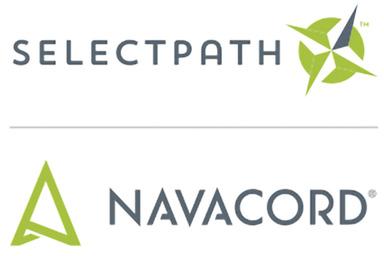



Searching for the right support to tackle your key business challenges?
Wasting too much time searching for quality suppliers?
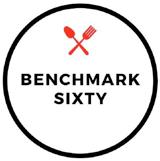

Foodbuy has searched and evaluated high-quality suppliers that can help support your needs. From staffing and scheduling to marketing and insurance. It’s all part of Foodbuy’s Professional Services.



Experts include:
Food & Beverage
Bar inventory consultants
Beverage alcohol marketing programs

Draught beer services

Technology Reservation systems
Delivery support systems
Digital media support

Financial
Restaurant equipment financing

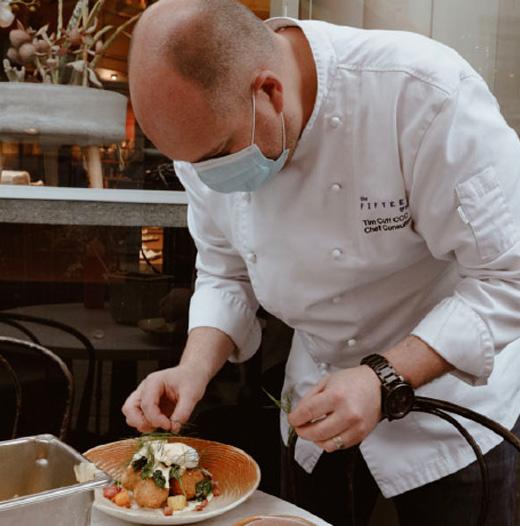
Insurance and staff benefits

Automated field audit reporting

Human Resources
Temporary staffing solutions
Scheduling tools
Training and education programs


Other
Restaurant concept development
Brand development
Music services
Waste Solutions
And more….

Burgers. Summer. Patios.
Burgers are synonymous with summer. You likely already have burgers on your menu, but why not start thinking outside the box and add some versatility to your basic burger.
Burgers are an ideal platform for a variety of unique ingredients. There are no boundaries as to what toppers you can pile on. Everything from the indulgent, to the healthy, to the comforting classics are fair game.

And there’s also no boundaries as to what you can make your burger from. Today’s consumers are eating less meat, so restaurants are more often adopting burgers made from plant-proteins or fish
Canadians diners like to try new foods and unique flavours when dining out, and the urge to experiment is even higher among Millenials and GenZ, especially when it comes unusual carriers (such as burgers in a pita) and global condiments.
A recent survey from Technomic asked consumers what drives them to order burgers, and the top answers included the ability to customize, different types of burgers offered and signature burgers.
Data from Technomic shows that the fastest growing ingredients are unique, straying away from the tried and true.
Pulled pork tops Technomic’s list of fastest growing ingredients on burgers, highlighting the growing trend of indulgent meat-on-meat.
Tartar sauce’s fame is growing. This sauce is most often used on seafood burgers, such as salmon or cod, and accentuates consumers’ desire to have lighter options and to eat less red meat (also shown by the growth of plant-based beef).
Move over lettuce, upscale arugula is taking over. Chefs are pairing it with other upscale ingredients such as brie or bacon for elite treat.
And any burger lover knows you need cheese. The rising star is Provolone, a mild, versatile, Italian cheese that pairs well with many flavours.
So go ahead. Mix it up. Make it up. Be bold and daring. You may just invent a new trending fave.




Whether you’d like to refresh your menu or give it a complete overhaul, Flanagan Foodservice has the insight, experience, and products (over 10,000!) to support you and help your business thrive.
Ordering your food and supplies shouldn’t be something you have to worry about. Your assigned foodservice expert will help you navigate the ordering process, inspire fresh ideas and, together, work toward one shared goal - your success. While we help move your business forward, we like to keep it simple and easy.

Many Canadian small businesses, such as restaurants, rely on private capital to keep the lights on and running, and many are facing a myriad of obstacles to their growth.
A small business grant could be the answer to helping you grow your business, or start a new venture, even in an unstable economic environment. It may be enough to help you temper the impact of economic obstacles, and push forward and succeed.
Most grants are highly competitive, but
when you find the right one for your business and you know how to apply to them, they can be an incredible help.
Many challenges facing Canadian small businesses today aren’t new, but changes in market behaviours and demands, high inflation, labour woes, and other conditions are exacerbating them.
The effects of the Covid-19 pandemic on the restaurant industry were devastating to crippling. Operators have had to face unprecedented challenges from the pandemic, adopting new technologies and business processes to continue to operate, often with a blind eye as to how to do this. Then came supply chain shortages, skyrocketing food prices, labour shortages, and increased labour costs.
In March 2022, inflation reached 6.7%, the highest rate since January 1991. Gas prices alone rose 11.8%, paving the way for higher costs for materials and delivery.
Meanwhile, higher labour costs mean more out of pocket money. Budgeting for them, finding additional funding if necessary, and keeping profits up, can be tough.
Unprecedented labour shortages have hit the restaurant industry hard, forcing many owners to reduce store hours, work extra hours themselves and cut down menus. Finding — and keeping — skilled employees is a hard fought battle. Tactics such as reaching out to already-employed workers with offers that often include higher wages, more flexibility, and enticing perks are being used. Staying attractive to both current employees and new candidates can add to a small business’s costs.
Cash flow, debt management, and financing are constant concerns for small businesses, and the current economic climate could make managing the budget for a small business tougher. In Q1 of 2021, more than 20% of small businesses said they couldn’t take on more debt. Rising interest rates mean many loans are growing more expensive.
Government loans (CEBA loans) that were paid out during Covid to help many restaurants and businesses stay afloat during lockdown were interest free if repaid by Dec. 31, 2023 — a deadline that is fast approaching and impossible for some to meet.
No matter what your business offers, your sales, profitability, and cash flow may be affected by the challenges in this economy. If you’re feeling or anticipating any of the above challenges, now is a great time to apply for a grant or look into other resources. A grant may offer your business a lifeline outside of traditional venture capital.
~ With content from Chase


Modeled after the Digital Main Street programs in Ontario and Toronto, The Canada Digital Adoption Program is a $4 billion federal fund that helps small and medium businesses start or expand their digital operations.
Who it’s for:
Small businesses may be eligible for a Grow Your Business Online micro-grant (up to $2,400).
Small and medium businesses may be eligible for a Boost Your Business Technology grant to hire a digital advisor.
Obstacles addressed:
• Managing labour shortages, recruiting, and retaining talent
• Addressing government regulations, such as network security, privacy, and compliance efforts

• Keeping pace with competitors
How you can spend it:
• Work with a digital advisor.
• Set up a website.
• Outsource search engine optimization (SEO) or social media marketing efforts.
• Cover e-commerce fees.
• Hire young Canadians.
• Fund network security measures.
The Women Entrepreneurship Strategy program provides more than $6 billion to help women-owned businesses and female entrepreneurs access to the financing, talent, networks and expertise they need to start up, scale up and access new markets.
Who it’s for:
• For-profit businesses run by women looking for loans of up to $50,000
• Not-for-profit organizations that help women entrepreneurs

Obstacles addressed:
• Rising cost of inputs
• Labour shortages, recruiting/retaining talent
• Fluctuations in consumer demand
• Cash flow, managing debt, and financing
• Taxes and government regulations
• Keeping up with competitors

The Indigenous Growth Fund enables Indigenous entrepreneurs throughout Canada to receive the capital they require to start or expand their businesses. Funds are distributed by Aboriginal Financial Institutions (AFIs) .
Who it’s for:
Small and medium Indigenous businesses
Obstacles addressed:
• Rising cost of inputs
• Labour shortages, recruiting/retaining talent
• Fluctuations in consumer demand
• Cash flow, managing debt, and financing
• Taxes and government regulations
• Keeping up with competitors

The Black Entrepreneurship Program is an investment of up to $265 million designed to be spent over four years. The program started by funding research into how to best help Black-owned businesses and training and mentorship for Black entrepreneurs. Additionally, the Black Entrepreneurship Loan Fund has loans of up to $250,000 and a pilot program for micro-loans of $10,000 to $25,000.
Who it’s for:
Start-ups and for-profit businesses led by greater than 51% Black, legal Canadian residents who are 18 years old or older.
Obstacles addressed:
• Cost of inputs
• Cash flow, debt management, and financing
• Keeping pace with competitors
How you can spend it:
• Capital investments, such as equipment and property improvement
• Working capital, such as inventory, payroll, rent, and other overhead
• Short-term receivable funding, such as financing upfront costs for work that’s billable later


Revel in the flavour of “The Great Canadian Bavarian Celebration” called Oktoberfest. Our popular, signature Oktoberfest sausage served with beer and garnished with sauerkraut and mustard makes any meal a celebration. The only true Oktoberfest sausage made in Canada.

Italian
Italy is a country of great diversity offering a wide variety of ingredients that have inspired our Italian sausage. The distinct flavours of garlic, fennel and anise are combined to make this a “World of Flavours” favourite. Our mild Italian has a pinch of sweetness while the hot Italian uses a richer blend of spices giving it a little kick for the palate.
Mediterranean Bratwurst
The fragrant cuisines of the Mediterranean rely heavily on fresh vegetables and aromatic herbs and spices. We combine sun-dried tomato, garlic, and our own unique blend of herbs and spices to create a flavor reminiscent of the Mediterranean Sea side.
This German classic sausage made from pork and seasoned with herbs and spices including nutmeg, pepper and ginger is a renowned favourite. Charcoal grilling to a golden brown is the art of cooking bratwurst. Cooked brats slipped into a hard roll and topped with pickles, ketchup, onions and stone-ground mustard are sure to make your customers say…Mmmmmm.


This spicy Hungarian specialty sausage has an orange-red appearance that matches its zesty flavour. Slow, natural smoking gives this sausage a true European taste. Debrazzini is another much loved barbeque sausage.
This Cajun style sausage is a versatile and tasty pork sausage. Deep smoke and distinct seasoning, it is truly an undiscovered classic.









For more information or recipe ideas visit: mapleleaffoodservice.com or call
 33678 Oktoberfest Cart Sausage 7”/134g - 5 x 10 pc x 134g
24297 Smoked Oktoberfest Cart Sausage 7”/134g – 5 x 10 pc x 134g
24903 Traditional Oktoberfest Sausage 5”/87g – 5 x 10 pc x 87g
33686 Italian Cart Sausage 7”/134g - 5 x 10 pc x 134g
25193 Traditional Hot Italian 5”/87g – 5 x 10 pc x 87g
25209 Traditional Sweet Italian Sausage 5”/87g – 5 x 10 pc x 87g
53340 Mediterranean Cart Sausage 7”/134g - 5 x 10 pc x 134g
33678 Oktoberfest Cart Sausage 7”/134g - 5 x 10 pc x 134g
24297 Smoked Oktoberfest Cart Sausage 7”/134g – 5 x 10 pc x 134g
24903 Traditional Oktoberfest Sausage 5”/87g – 5 x 10 pc x 87g
33686 Italian Cart Sausage 7”/134g - 5 x 10 pc x 134g
25193 Traditional Hot Italian 5”/87g – 5 x 10 pc x 87g
25209 Traditional Sweet Italian Sausage 5”/87g – 5 x 10 pc x 87g
53340 Mediterranean Cart Sausage 7”/134g - 5 x 10 pc x 134g

For additional information, please contact your Foodbuy representative or Ryan Delorme, Italpasta Ltd., 416.529.7059




15-SECOND Kills the Virus that Causes COVID-19 in 15-Seconds*
A 2-in-1 food contact cleaner sanitizer concentrate that kills the virus that causes COVID-19 in 15-seconds and Norovirus in 30-seconds.* Let your team clean and sanitize surfaces faster in both the back and front of house. Now you can feel confident in your cleaning procedures and getting back to business.

Streamline your clean. ECOLAB.COM



FOOD
CONTACT SAFE*
DIN Registered Food Contact Sanitizer
2-IN-1 SOLUTION
Cleaner & Sanitizer Means Less Steps


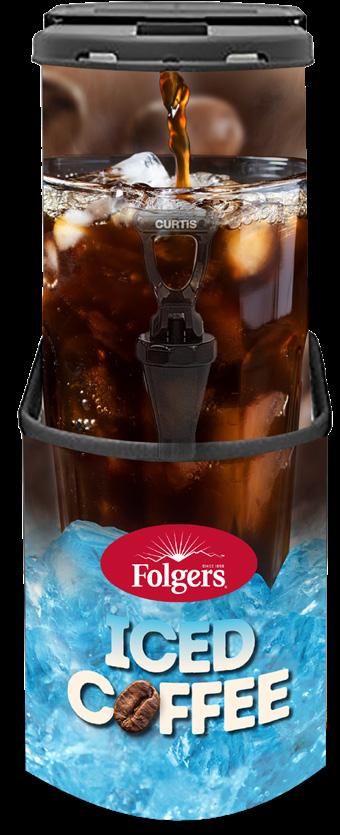
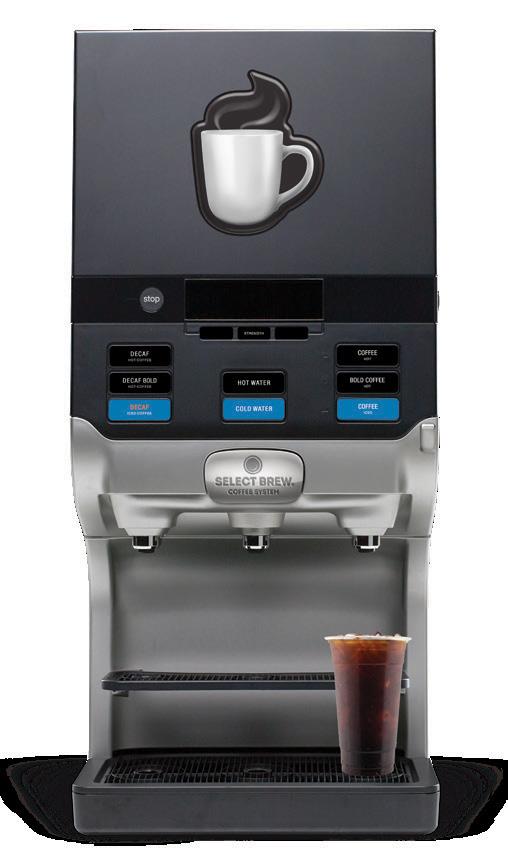
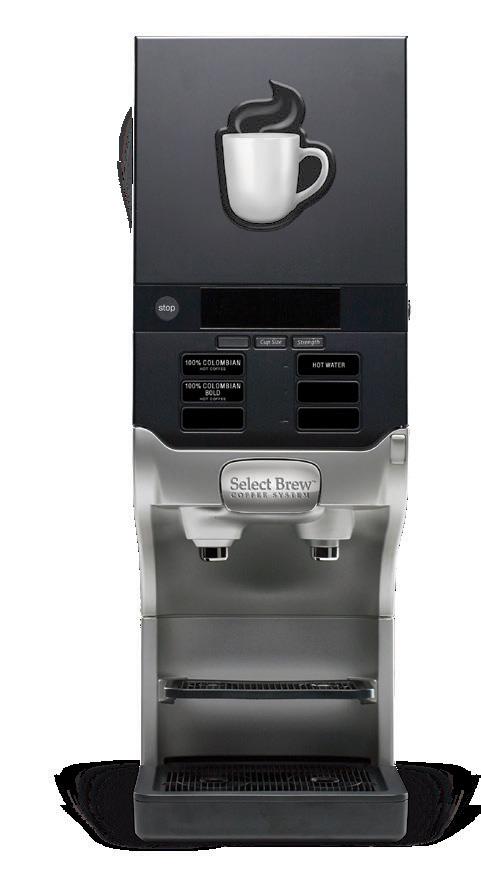

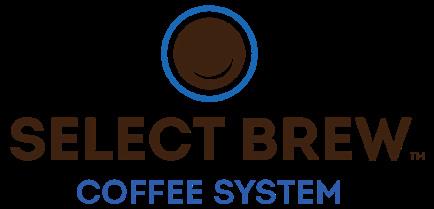
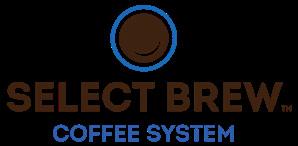
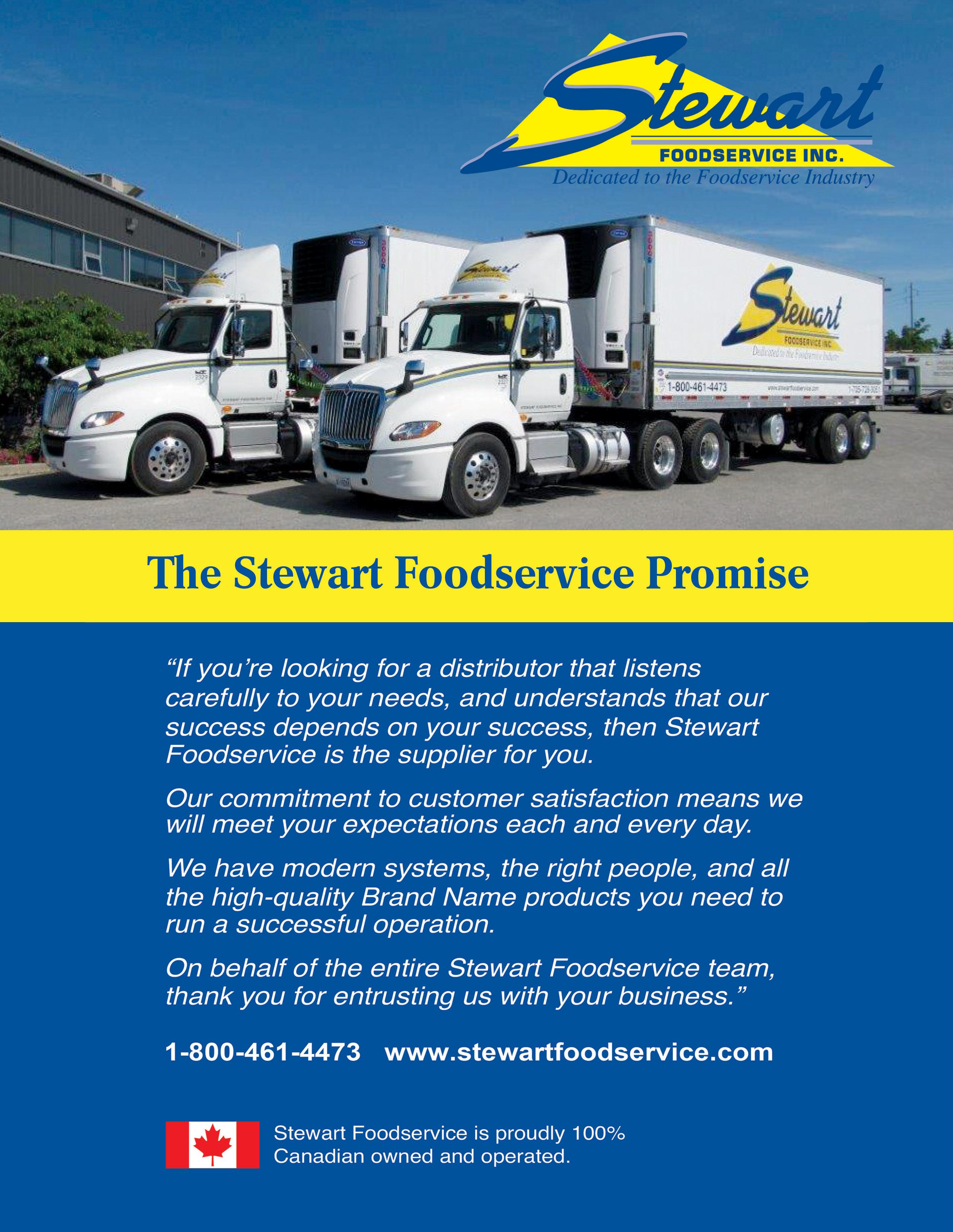

POWERED BY

Powered by Navacord and Selectpath, Foodbuy is proud to facilitate a series of comprehensive insurance programs to protect organizations in the food service, hospitality




As one of Canada’s leading insurance brokerages, Navacord is committed to meeting the needs of its clients by delivering expert advice. Backed by this national strength, Selectpath provides a local touch, helping its clients navigate ‘The Right Path’ to success through a personalized approach.



As we approach patio season, prepare to serve your guest exciting, colourful and fresh foods. Fresh produce adds eye appeal and lends itself to diners craving healthy meals and snacks.
FRUIT / VEGETABLE SLICER, CUTTER
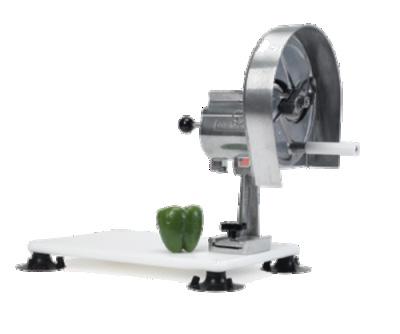
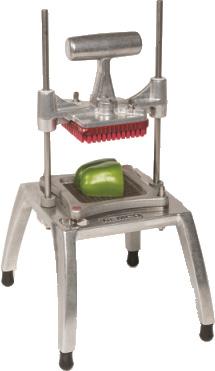
Crunched for time?
United Restaurant Supplies provides labour-saving smallwares and light equipment like produce peelers, slicers, dicers and spiralizers.
This slices processes up to 4” diameter onions to 3/16” slices in one stroke, in addition to a variety of other fruits and vegetables. The cartridge blade and pusher come off easily for cleaning.
FRUIT / VEGETABLE TURNING SLICER
This product has a stainless steel blade that slices fruits and vegetables 1/8” thickness.
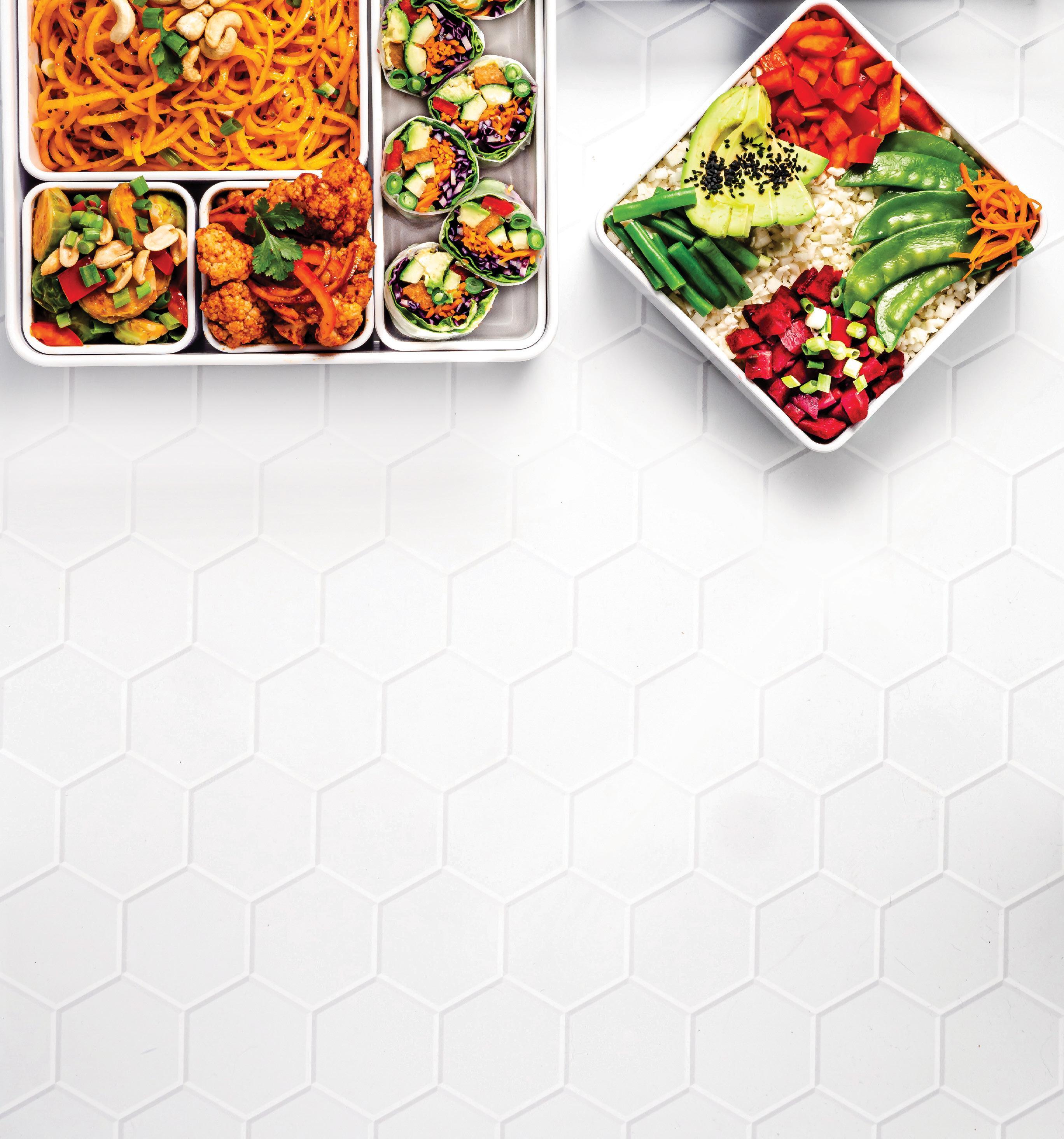
For additional information, or to speak with a smallwares expert, contact United Restaurant Supplies.
www.united-rs.com
Reliable help has arrived. Get instant relief to labor pain points with the new, innovative robot collection from Browne Technology.


They are now available through United Restaurant Supplies and ready to ship to you within a few short weeks of placing your order.


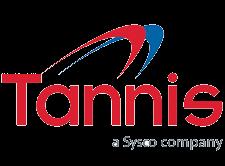
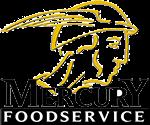


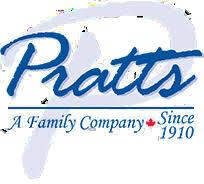
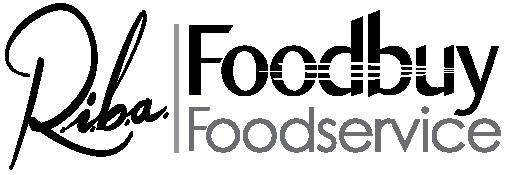





Did you know that suppliers have minimum order fees?

If you aren’t reaching the minimum order amount, you could be incurring unwanted costs.



Reach out to your R.I.B.A./Foodbuy Foodservice representative and ask what the minimum order is and if you are reaching it.


Introducing our ultra flexible chef coats, inspired by movement, minimalistic design, and maximum comfort

- Slice, dice & toss with ease – thanks to 4-way stretch, kitchen-worthy pockets, and Cool VentTM technology

- Features REPREVE, the world’s leading brand of sustainable performance fibre that transforms recycled plastic bottles into breathable knit mesh
































































Vice President
Christos N. Kyriakopoulos
Chris.Kyriakopoulos@foodbuy.ca
General Manager
Rich Hsu
Rich.Hsu@foodbuy.ca
Senior Director of Sales
Peter N. Kalantzis
Peter.Kalantzis@foodbuy.ca
Senior Account Manager - Foodservice
Mandy Ouellette
Mandy.Ouellette@foodbuy.ca
Account Manager - Foodservice
Kiran Thandi
Kiran.Thandi@foodbuy.ca
Account Manager - Foodservice
Rahul Patel
Rahul.Patel@foodbuy.ca
Account Manager - Foodservice
Panagiotis Roumbas
Panagiotis.Roumbas@foodbuy.ca
Account Manager - Foodservice

Laura Pauli
Laura.Pauli@foodbuy.ca
Account Manager
Nancy Rasic
Nancy.Rasic@foodbuy.ca
Member Engagement Manager
Sindy Dierken
sindy.dierken@foodbuy.ca
Marketing / Graphic Designer
Susan Batsford
Susan.Batsford@foodbuy.ca
VP Strategic Development
Troy Taylor
Troy.Taylor@foodbuy.ca
and over 60 additional Foodbuy employees supporting this channel
Supplier Listings
Belmont Meats Call the R.I.B.A. Office
Burnbrae Farms Call the R.I.B.A. Office
Canada Bread Consumer Centre 1-800-465-5515
Canadian Linen 1-855-326-0940
Chase® Merchant Services Call the R.I.B.A. Office
Ecolab 1-800-35-CLEAN
Erie Meat Products Ltd. Call the R.I.B.A. Office
Export Packers (905) 792-9700
Fresh Start Foods 1-800-563-5033
Macgregors Meat & Seafood 1-888-383-3663
Pepsico Foodservice 1-800-387-9546
Rational Call the R.I.B.A. Office
Saporito Foods (905) 944-0505
Selectpath - Benefits & Financial Call the R.I.B.A. Office
Sofina Foods Call the R.I.B.A. Office
Flanagan Foodservice Inc. (Kitchener) 1-800-265-6550
Flanagan Foodservice Inc. (Whitby) 1-800-265-6550
Flanagan Foodservice Inc. (Sudbury) 1-800-565-5850
Gordon Food Service
Kronos Food
1-800-268-0159
1-800-739-9921
Mercury Foodservice (905) 546-5554
Morton Food Service
Multi Plus
1-800-265-5663
1-866-745-8881
Pratts Food Service - Manitoba (204) 949-3017
Pratts Food Service - Saskatchewan (306) 546-5444
Pratts Food Service - Alberta (403) 476-7728
Stewart Foodservice Inc. 1-800-461-4473
Sysco Central Ontario 1-800-461-6543
Sysco Southwestern Ontario 1-855-373-4555
Sysco Tannis
Sysco Toronto
Pepsi Sudden Service
1-855-736-6000
1-888-440-2524
1-800-387-6683
Ecolab 1-800-35-CLEAN
Chase® Merchant Services Help Desk 1-800-265-5158
Canteen* (For coffee related inquiries) 613-294-4083
Toll free: 1-866-292-8363
email: Info.Canteen@Compass-Canada.com